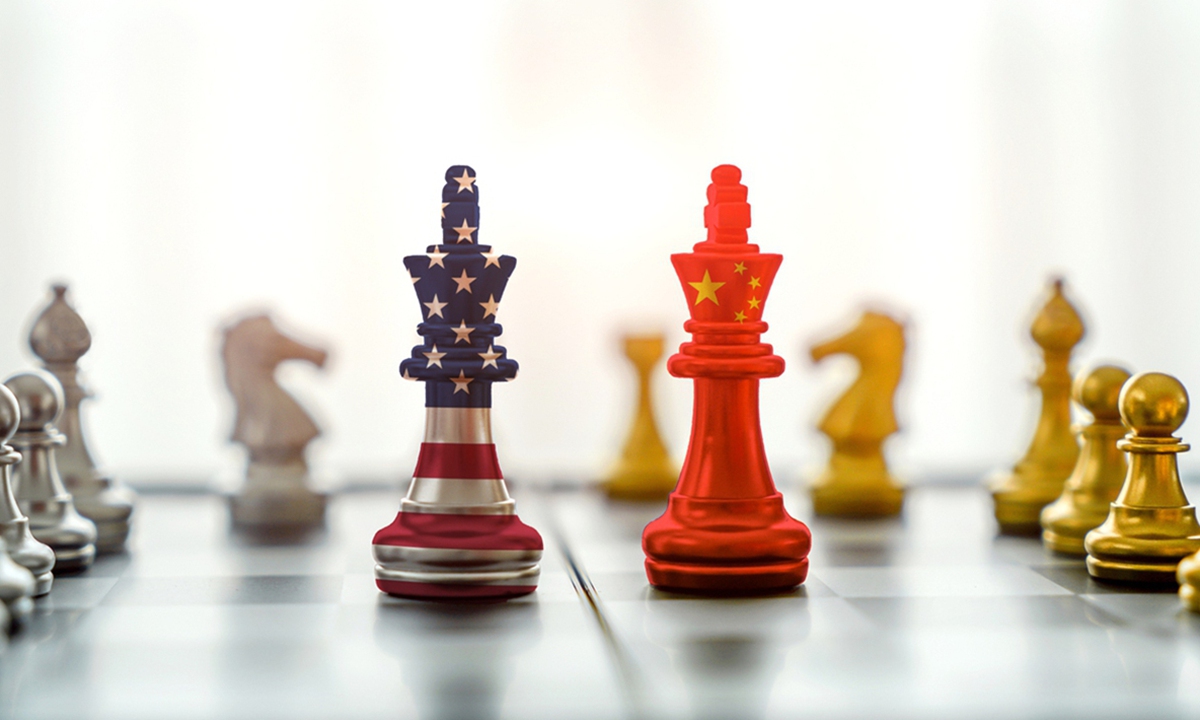
China US
The US Commerce Department on Saturday said that the US has substantially completed a deal with its allies in Indo-Pacific Economic Framework (IPEF) talks amid what it called "economic coercion" by China, after China banned US semiconductor company Micron.
The latest move to target China on the heels of a trade officials' meeting shows that the US lacks sincerity in negotiations, experts said.
US Commerce Secretary Gina Raimondo told a news conference after a meeting of trade ministers in the US-led IPEF talks that the US "firmly opposes" China's actions against Micron, Reuters reported.
The US "won't tolerate" China's effective ban on purchases of Micron Technology memory chips and is working closely with allies to address such "economic coercion," Raimondo said on Saturday.
The remarks, which came days after China's Commerce Minister Wang Wentao met with the US commerce secretary and US trade representative in the US and held "candid" talks, showed the lack of sincerity on the US side, He Weiwen a senior fellow at the Center for China and Globalization, told the Global Times on Sunday.
Wang met with US Commerce Secretary Gina Raimondo in Washington on Thursday before attending the 2023 APEC Ministers Responsible for Trade Meeting in Detroit, the US.
The Chinese side expressed key concerns about US economic and trade policies toward China on semiconductors and export controls, and outbound investment reviews.
Wang also met with US Trade Representative Katherine Tai on Friday. The Chinese side expressed concerns over US economic and trade policies toward China, Taiwan-related topics in the economic and trade domain, the Indo-Pacific economic framework and Section 301 tariffs. Both parties agreed to maintain communication.
"China-US candid trade talks offered a start to address the core issues in ties. However, Raimondo's move to skip China and get other countries to take action against China, is not a way to solve the core issues," He said.
The repeated double-dealing will cause deep damage to China-US relations, Chen Jia, an independent research fellow on global strategy, told the Global Times on Sunday.
In particular, some US officials have used the Micron incident as a political card to attack China's market openness and transparent regulatory framework, which only showed their unilateralist and polarized political thinking, and will do nothing to repair China-US relations, Chen said.
The US Commerce Department also said that the IPEF talks produced a deal on supply chain early warnings, which experts see as the latest approach to de-risk ties with China and contain China's growth in the sector.
Trade ministers of 14 countries in the IPEF "substantially completed" a deal to make supply chains more resilient and secure at the meeting, Reuters reported. The deal calls for countries to form a council to coordinate supply chain activities and a "Crisis Response Network" to give early warnings to IPEF countries of potential supply disruptions.
However, such efforts are doomed to fail as nothing will come out of the empty words from the IPEF, experts said.
"The IPEF is neither a trade agreement nor an economic community. It's just a framework, meaning that it will have no real efficacy," He said.
Many IPEF partners are also members of trade agreements like the Regional Comprehensive Economic Partnership (RCEP), meaning that they have to follow the supply chain rules under the RCEP, He said.
The "crisis response network" on the basis of no substantive trade agreements is a traditional pattern of the US to extract political and economic benefits from its allies based on an imaginary enemy, Chen said.
Last month, the White House quietly asked South Korea to urge its chipmakers to hold back from boosting sales to China if the sale of Micron products was restricted by Beijing, a move that seriously hurt the interest of its allies, experts said.
About 40 percent of South Korea's chip exports go to China, while US technology and equipment are necessary for South Korean chipmakers Samsung Electronics and SK Hynix, according to media reports.
Addressing the tariff issue at the IPEF talks, the Deputy US Trade Representative Sarah Bianchi said that the Biden administration is not assuming any such breakthrough will happen, but will continue dialogue with China at various levels.
Only when the US side gives up the attempt at artificial decoupling and truly returns to the framework of globalization and free trade cooperation can China-US relations release the ballast effect of economic and trade cooperation, Chen said.
In contrast to growing US unilateralism and protectionism, China has reiterated its position on supporting the multilateral trading system and promoting sustainable and inclusive trade development.
Attending the APEC meeting, Wang called on APEC economies to continue to advance regional economic integration, further deepen trade and investment cooperation, and share the opportunities and dividends brought by the integrated development of regional industrial and supply chains.




